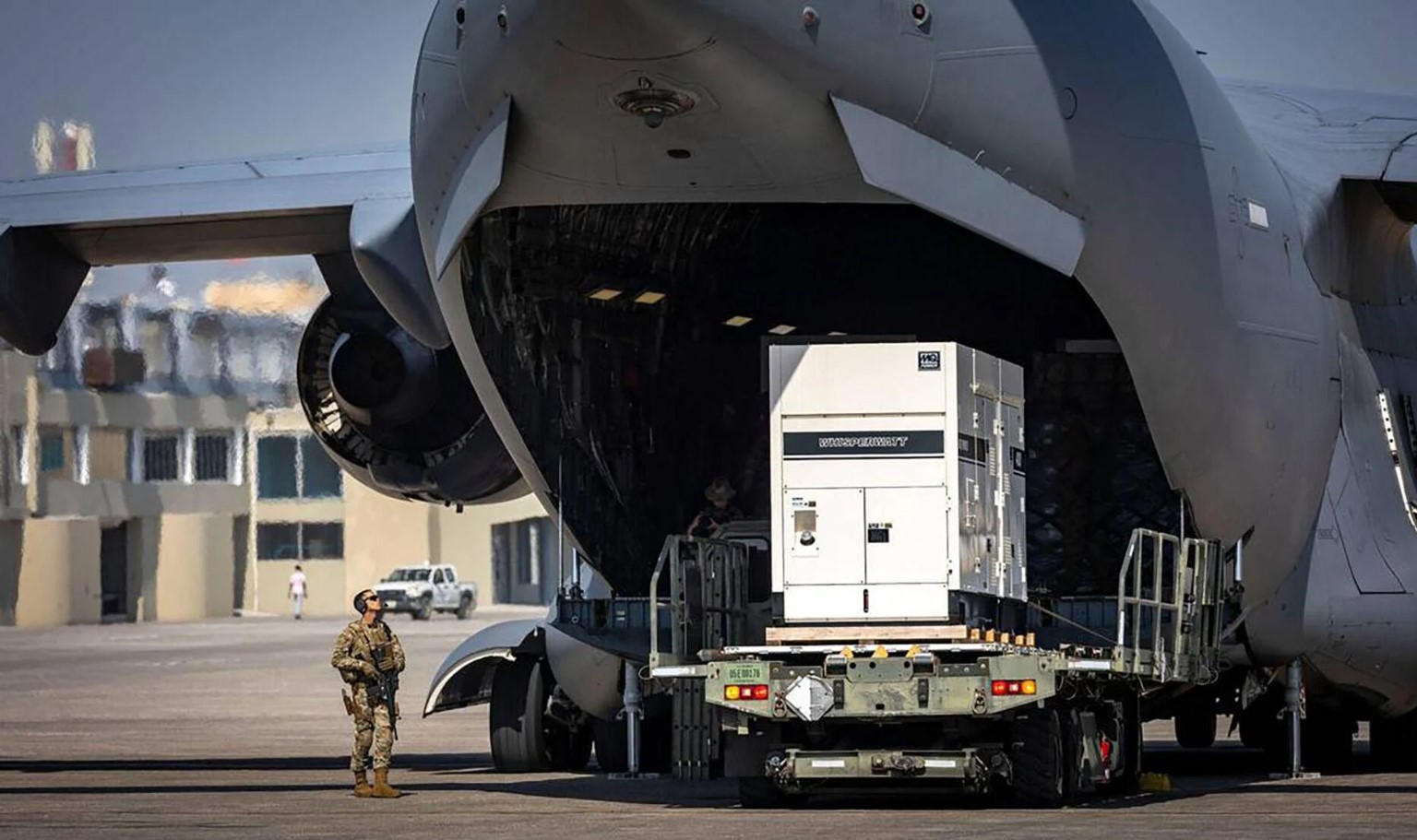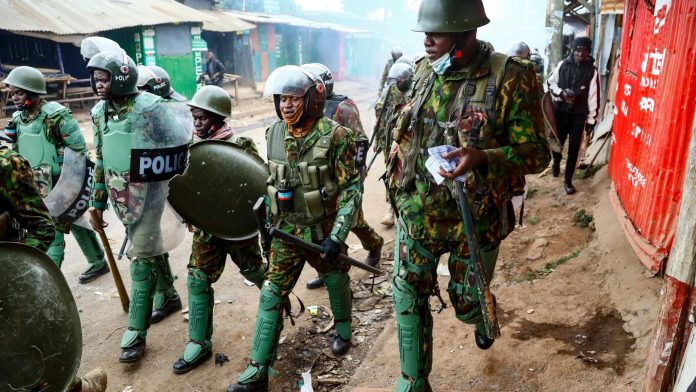As the first large deployment of Kenyan police officers was preparing to take off from Nairobi, Kenya, to Haiti, their deployment has been delayed. This deployment was supposed to take place today, several days after Kenya’s first delegation of police personnel arrived in Port-au-Prince to prepare the way for the primary deployment.
Unknown Reasons
On May 20th, the first delegation of Kenyan authorities arrived in Haiti. The small delegation had been sent in order to finalize preparations for the deployment of several hundred officers later in the week. From the 23rd to the 26th of May, approximately 400 more officers were set so arrive in Haiti. The additional deployment was to begin today in order for it to coincide with Kenyan President William Ruto’s state visit to the White House. However, the deployment of these extra officers has been delayed right before it was supposed to happen; and it is uncertain exactly why.
Several sources familiar with the matter have offered potential clues as to why the deployment, which was first announced in July, may have been delayed even further.
Firstly, Kenya has reportedly yet to have delivered a series of different paperwork to the UN Security Council. This paperwork, which outlines the Rules of Engagement of the Multinational Security Support (MSS) mission, their goals, and their organizational structure is necessary to beginning the deployment. This particular obstacle is easy to overcome.
Secondly, the Kenyan delegation that arrived Monday has reportedly denoted a significant lack of necessary equipment in the hands of Haitian police. US deliveries of equipment, including weapons, has been ongoing for several weeks, with more to come. However as things currently stand, Haiti’s police are lacking radio and communications equipment, armoured vehicles, and helicopters.

Such equipment is necessary for safely transporting the officers of the MSS, transport wounded (both in the MSS and civilians) out of the country, and ensure the operability of the MSS is high. Radio and communications equipment is set to be delivered by the US by the end of May, though it remains unclear where the mission will source helicopters and armoured vehicles from.
El Salvador has reportedly offered helicopters to the mission, however there apparently remains disagreements in the establishment of the deal.
Thirdly, sources on the ground have said that the conditions in Port-au-Prince were insufficient to properly received the officers. The exact meaning of this is not immediately clear, however, construction on facilities in order to house the personnel of the MSS began only a few weeks ago, and so it could very well just mean that said facilities are not yet prepared for the arrival of hundreds of personnel.
Additional problems
Besides the problems in actually beginning the deployment, the MSS will also face a number of issues on the ground.
- The primary adversary that Haitian police are facing, and thus the primary adversary the MSS will face, is the G9 Alliance. The G9 is an association of gangs headed by former police officer Jimmy ‘Barbecue’ Cherizier. While just one of many different gangs, the G9 is the perpetrator of many of the large attacks in the past, and many of those still ongoing. The G9 has vowed to violently oppose any international intervention force, meaning that Kenyan officers, and the others in the MSS, are likely to come under attack by the G9.
- Some critics, including within the Kenyan political sphere, have claimed that Kenya’s police force is ill equipped to take on such a challenge, in both the equipment they have, as well as their training. The mission’s equipment is to be supplied by the UN and the US, however the quality of this equipment remains to be seen.
- Haiti’s prison system is simply not big enough to handle mass arrests of gang members. This particular problem has been far worsened by repeat attacks against several of Haiti’s prisons, which have caused hundreds of prisoners to go free, and caused significant damage to Haiti’s incarceration infrastructure. One such attack took place over the weekend, with the 400 Mawozo gang destroying parts of the Titanyen prison.
- Haitian civilians are rather wary of any foreign interventions. The UN’s intervention mission in Haiti left behind a devastating legacy, being the cause of a cholera outbreak as well as several prominent cases of sexual abuse.
This prison in Titanyen, north of Haiti's capital Port-au-Prince, was inaugurated by the U.S. ambassador in 2016. Yesterday, a watchtower and a wall were partly demolished, reportedly by a gang. It's one of several prisons attacked ahead of incoming U.S.-funded police mission. pic.twitter.com/9KmYDAQreu
— Christiaan Triebert (@trbrtc) May 19, 2024
These obstacles will be difficult for the MSS to overcome.
The Deployment
Kenya initially answered the call of former Haitian Prime Minister Ariel Henry for an intervention force in July. The UN Security Council approved the deployment in October, but at home it has faced a series of legal challenges that have caused its delay up until the present.
As the head of the force, Kenya is to deploy 1,000 police officers in total. Besides Kenya, Jamaica, Bangladesh, Barbados, the Bahamas, Benin, and Chad have additionally pledged their own police officers, although it is unclear when exactly they will be joining their Kenyan counterparts.
The added personnel from these nations will bring the total manpower of the MSS up to approximately 2,500.
The purpose of the deployment is to assist Haiti’s outgunned and outnumbered police in fighting against the myriad of different gangs that plague the nation. The gangs, largely based in the capital of Port-au-Prince, are behind thousands of homicides each year, including over 2,000 so far in 2024.
The deployment is primarily funded by the US, who has committed 200 million USD to the mission.

